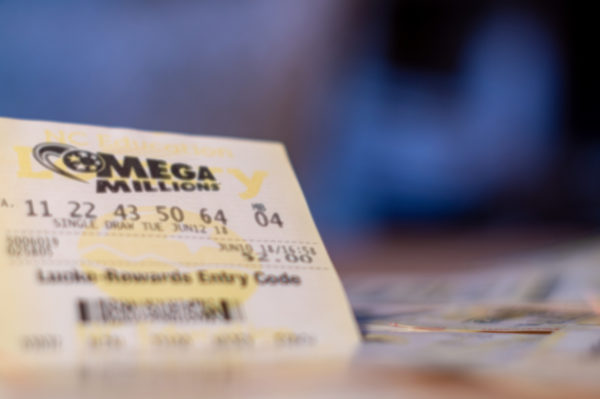
It”™s a good time to be the Connecticut Lottery Corp.
That”™s arguably always the case for an entity that, for the past decade, has generated sales of at least $1 billion and, since its 1972 inception, has delivered over $10 billion to the state”™s General Fund.
And things keep getting better: for its fiscal year ended June 30, 2021, the CLC racked up a record $1.5 billion in total sales, up 15% from FY 2020, and transferred a best-ever $418 million to the General Fund, a 20% increase from FY20.
That 2020 was dominated by Covid was likely a significant factor, Rob Simmelkjaer, chairman of the CLC”™s board of directors, told the Business Journal.
“We have a number of theories that are plausible” for the record numbers, he said. “Certainly Covid-19 had an effect, although there were a number of gaming options that were not available during the pandemic. People couldn”™t go to the casinos for a couple of months while they were shut down, and even when they reopened there were still a lot of concerns about health and safety.”
Professional sports leagues were also shut down for some time, Simmelkjaer continued, which may have benefited the underground wagering market but not the legitimate one.
He further opined that stimulus checks and initiatives like the Paycheck Protection Program “were filling people”™s pockets. They suddenly had extra money and time on their hands.”
Even so, the CLC”™s receipts are ahead of the record-breaking FY21 on a year-over-year basis, he said, though specific figures were not available. Simmelkjaer noted that the multi jurisdictional Mega Millions (available in 45 states, D.C. and the U.S. Virgin Islands) and Powerball (the same, plus Puerto Rico) can also encourage more people to participate as their jackpots grow. Powerball recently paid $699.8 million to a ticket purchaser in California.
“Even if we don”™t have the winning ticket, we draw significant sales from those games,” he said. “Once the jackpots get big enough, TV and radio announcers start talking about it ”” and that drives a lot of business.”
As a result, “Obviously we root for Connecticut winners ”” but if we can”™t have that, we root for no winners,” he quipped.
As a member of the CLC board, Simmelkjaer is prohibited by law from gambling ”” an inevitable step to avoid conflicts-of-interest charges. Last week Mohegan Sun pulled WNBA games from its wagering options, after complaints about its owning the Connecticut Sun team, as well as the squad”™s home arena, were made.
With legalized sports wagering having gone into effect on Sept. 30, and iGaming expected to follow soon, the CLC is also readying itself for what Simmelkjaer says will make for “meaningful contributions to our business and to our contributions to the state.”
He declined to provide an estimate on what the CLC could make from those ventures — “We don”™t like to throw numbers around” ”” but Rush Street Interactive, which will run its sportsbook, guarantees a minimum of $170 million for the corporation over 10 years.
“Sports betting is not big enough to double our numbers or anything like that,” he declared. “But the numbers we do will be a nice addition.”
Then there”™s Sportech, which has been licensed to offer sports wagering at 10 off-track betting locations, including Bobby V”™s sports bars in Stamford and Windsor Locks as well as at a yet-to-be-determined location in Bridgeport.
“We”™ll be opening (in Bridgeport) no later than the end of the year and we expect sooner than that,” Simmelkjaer said. “There are a couple of auditoriums under consideration.”
He confirmed what Sportech Venues President Ted Taylor told the Business Journal in August ”” that the Bridgeport location will not be at 255 Korruth St., where the company let its off-track betting lease lapse.
Simmelkjaer said he was directly involved in negotiating the CLC”™s deals with both Rush Street and Sportech, with the latter initially so upset at apparently being left out of the state”™s sports-betting/iGaming ventures, which originally were limited to the tribes operating the Mohegan Sun and Foxwoods casinos, that it had threatened legal action.
“It was simply a matter of coming to terms” with Sportech, he said. “They”™re a known entity that has an existing customer base that has been betting on horses.” Part of the negotiations included releasing any legal claims against the state, he added.
Rush Street, while not as well-known to the public as FanDuel ”” which is operating Mohegan Sun”™s sportsbook ”” and DraftKings, doing the same at Foxwoods, “is a trusted company that will help us compete efficiently with those two behemoths,” Simmelkjaer said.
The Westport resident noted that the CLC will celebrate its 50th anniversary next year ”” it was created in 1971 by then-Gov. Thomas Meskill, and began selling tickets in February 1972 ”” with some special games in the planning stages.
Simmelkjaer is also co-founder and CEO of the Norwalk startup Persona, a social video platform dedicated to interviews. As a former executive at both ESPN and NBC Sports, he said he “knows the sports-betting world pretty well.” Gov. Ned Lamont chose him to fill the vacant CLC board of directors chairman role in 2020. Â Membership on the board is an unpaid, volunteer role.


















